Own Address E-Mail Scam Uninstallation: Tutorial To Get Rid Of Own Address E-Mail Scam Instantly
Own Address E-Mail Scam is responsible for infecting following browsers| Chrome Versions | Chrome 48.0.2564, Chrome 57.0.2987, Chrome 50.0.2661, Chrome 54.0.2840, Chrome 58.0, Chrome 49.0.2623, Chrome 53.0.2785, Chrome 58.0.3026.0, Chrome 51.0.2704, Chrome 55.0.2883 |
| Mozilla Versions | Mozilla Firefox:41.0.2, Mozilla Firefox:38.0.1, Mozilla:43.0.2, Mozilla Firefox:38.2.0, Mozilla:49.0.1, Mozilla Firefox:43.0.3, Mozilla:44.0.1, Mozilla:46, Mozilla Firefox:44, Mozilla:47.0.1, Mozilla:45.1.1, Mozilla Firefox:45.6.0, Mozilla:38.5.1, Mozilla Firefox:38.2.1 |
| Internet Explorer Versions | Internet Explorer 7-7.00.6001.1800, Internet Explorer 8-8.00.7600.16385, Internet Explorer 10:10.0.9200.16384, IE 8:8.00.6001.18372, IE 8:8.00.7600.16385, IE 7:7.00.5730.1300, IE 10:10.0.8250.00000, IE 7:7.00.6000.16386, IE 8:8.00.7000.00000, IE 7:7.00.6000.16441, Internet Explorer 9-9.0.8112.16421, IE 10:10.0.8400.00000, IE 9:9.0.8112.16421 |
Remove Own Address E-Mail Scam From OS In Few Simple Clicks
Own Address E-Mail Scam is another type of OS virus which is a malicious program gets installed automatically on your OS without asking your permission. It inserts its harmful code into the registry entry and changes it for its automatic execution. It infects the data stored on OS including pictures, music, videos, files and documents. There are various methods by which it can enter your OS like drive-by download or free downloads, spam emails, clicking on malicious ads or pop-ups, visiting suspicious ads, etcetera.
When Own Address E-Mail Scam enters your OS, it starts to create havoc inside the OS. It at first disturbs the functioning of the OS by altering its internal settings. This perilous virus may change the desktop icons and creates new icons. Also, it allows hackers to remotely access the OS. Hence, it is not good at all to allow this malware to remain inside the OS for longer time.
Method 1 : Removal of Own Address E-Mail Scam From Firefox
Method 2 : Best Way To Open OS In Safe Mode
Method 3 : Removal of Own Address E-Mail Scam From Control Panel
Method 4 : Remove Own Address E-Mail Scam From Task Manager
Method 5 : Removal of Own Address E-Mail Scam From Registry Entry
Easy And Complete Removal Of Own Address E-Mail Scam From OS
Method 1 : Removal of Own Address E-Mail Scam From Firefox
Remove Own Address E-Mail Scam From Google Chrome
- At first, you need to open your Google Chrome browser.
- To open Chrome menu, click on gear icon present at the top right corner of browser.
- Click on Tools then goto Extension tab.
- Under Extension tab, select all unwanted extension related to Own Address E-Mail Scam.
- Finally, click on trash bin icon to Remove this virus from Google Chrome.

Remove Own Address E-Mail Scam From Internet Explorer
- Click on gear icon present at the right-top corner of the browser or press Alt+T keys to open menu.
- Click on Manage Add-ons and goto Toolbars and Extensions tab..
- Locate all the unwanted add-ons related to Own Address E-Mail Scam.
- Click on Disable button.
- Now, click More information button.
- Finally, click on Remove button to Remove the virus.

Remove Own Address E-Mail Scam From Mozilla Firefox
- Open Mozilla browser and click on the menu button at the top right corner of the browser.
- Click Add-ons -> Add-ons Manager tab.
- Select Extensions or Appearance panel.
- Find Own Address E-Mail Scam add-ons you want to Remove.
- Click the Remove button then restart your OS.

Remove Own Address E-Mail Scam From Microsoft Edge
- Click on More (...) icon at the top right corner then click on Settings option.

- Now, in the Open with option, click on A specific page or pages option.
- Choose Custom and type the URL which you want to set as your browsers default homepage.

Method 2 : Best Way To Open OS In Safe Mode
For Win XP/Vista/7 -
- Click on Start menu and then click Restart option.
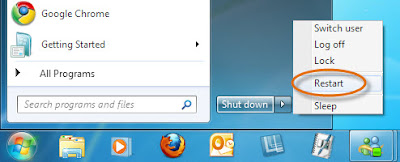
- Press F8 while OS boots-up.
- Under Advanced Boot option, select Safe Mode.
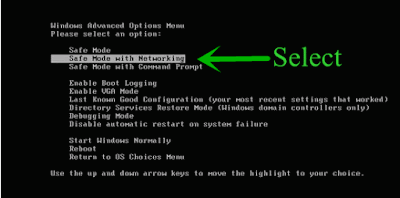
For Win 8/10 -
- Press Shift key while clicking on Restart button on the Shutdown menu.
- No, select Troubleshoot - > Advanced options.
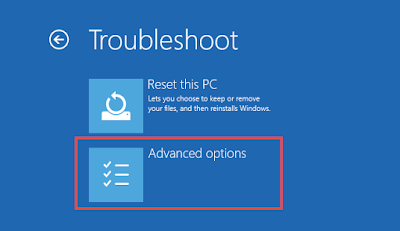
- Click on Startup Setting.
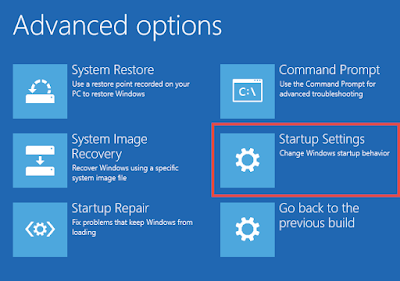
- Click Restart button.
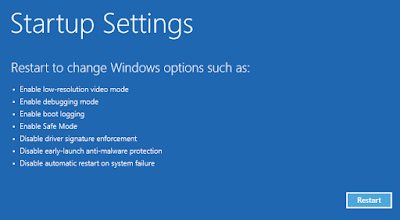
- Press F5 key for the option Safe Mode With Networking.
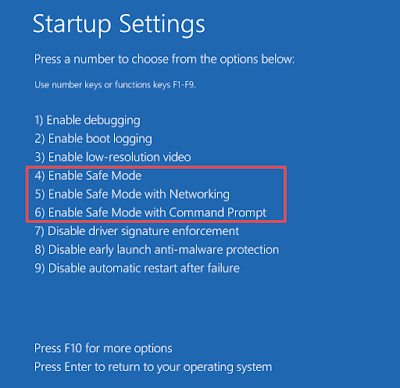
Method 3 : Removal of Own Address E-Mail Scam From Control Panel
Remove Own Address E-Mail Scam From Windows XP -
- Click Start button and goto and click on Control Panel.

- Click Add or Remove Programs option.

- In the window that appears, locate and Remove Own Address E-Mail Scam related programs.

Remove Own Address E-Mail Scam From Windows 7 -
- Press Window key present on the keyboard.
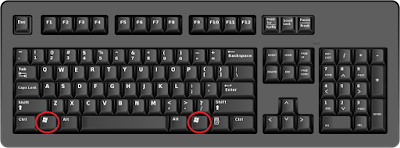
- Click Control Panel option.
- Click on Programs option from the Control Panel window.
- Select the Own Address E-Mail Scam executable file from the list of installed programs.
- Click on Remove option.

Remove Own Address E-Mail Scam From Windows 8 -
- Open run box by pressing Window+R keys together.
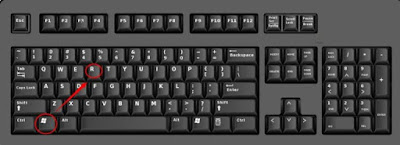
- Type control panel in the run box and hit Enter key.
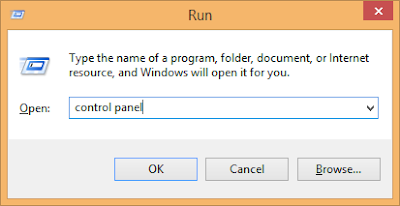
- Click on Remove a Program option.

- Select programs related to Own Address E-Mail Scam and click Remove option.
Remove Own Address E-Mail Scam From Windows 10 -
- Click on Start button and select Settings option from the Start menu.
- Select System option under Settings.
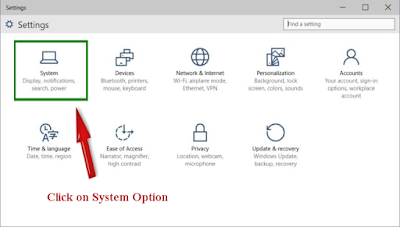
- Click on App & Features option.
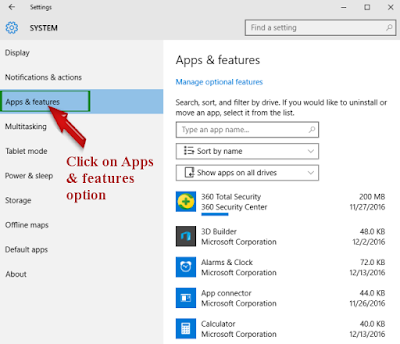
- Finally, Remove all the unwanted programs from your OS.
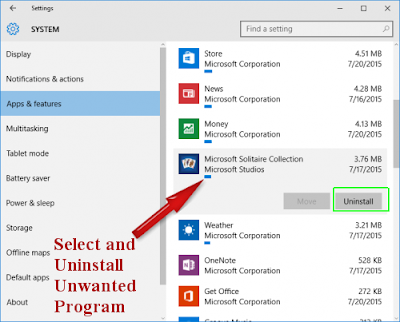
Method 4 : Remove Own Address E-Mail Scam From Task Manager
- Right click on Taskbar.
- In the menu, choose Task Manager.

- From the various running process, select the unwanted process.
- Click End Task.

Method 5 : Removal of Own Address E-Mail Scam From Registry Entry
- Press Windows+R keys to open Run box.
- In the run box, type regedit and click on OK.
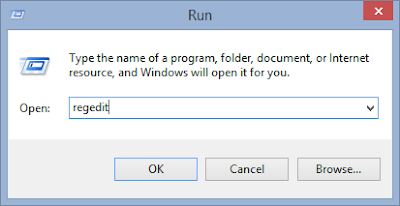
- Locate and remove all the registry files related to Own Address E-Mail Scam.
HKEY_CURRENT_USERSoftwareMicrosoftInternet ExplorerMain Default_Page_URL
HKEY_LOCAL_Machine\Software\ClassesOwn Address E-Mail Scam
HKEY_CURRENT_USER\Software\Microsoft\Windows\CurrentVersion\Run .exe
HKCU\Software\Microsoft\Windows\CurrentVersion\Internet Settings\random
HKEY_LOCAL_MACHINE\SOFTWARE\Microsoft\Windows\CurrentVersion\run\random

No comments:
Post a Comment